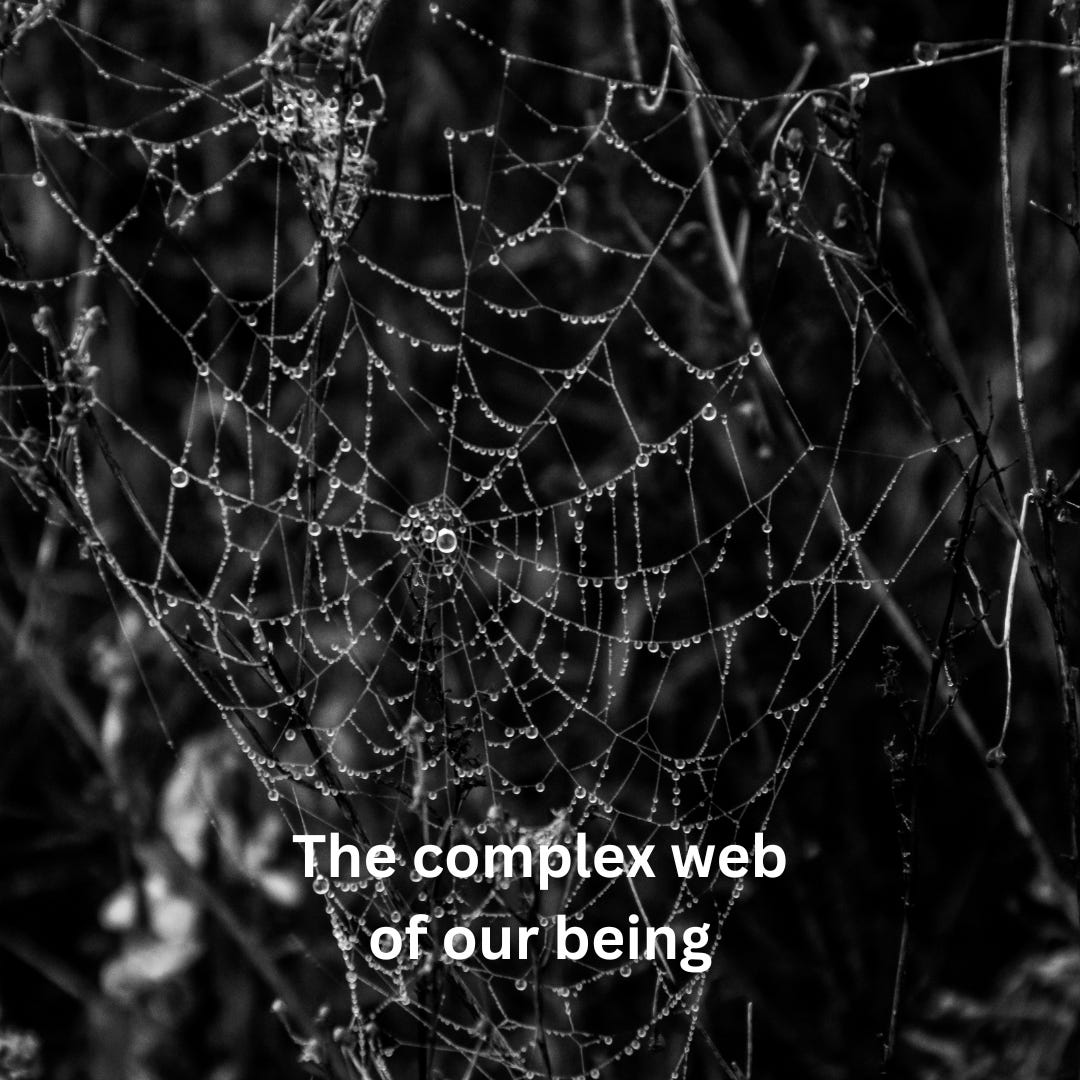Brain Beautiful
Locked in. Trapped in a box, spiders and shadows for friends and having deep conversations with both.
When it’s your mind that’s changed in unfathomable ways, the struggle is beyond body. How do you reconcile your sense of self and mind, during and after a mental health crisis?
One of my biggest complaints about the medical system is the compartmentalisation of our bodies and here I was, doing the same! It’s all very well and good focusing on loving our body exactly as it is but as a generous subscriber also pointed out, for her, it’s about loving her brain.
Her overwhelmingly positive response got me thinking about the integration of the whole – we’re far more than our body, we’re our mind and our spirit too. It’s impossible to separate one from the other.
Loving your body is more about your mind than anything else. It’s how we perceive ourselves. The same goes for our minds. If you’ve struggled with your mental well-being, learning to love your mind can be just as hard as loving your body.
I know this particular subscriber well – we’ve been friends for too many years to count. I also know the incredible brain this woman has and the struggles she’s been through with mental health and a serious brain injury.
She vividly described her experiences in a psychiatric ward, doing so with her usual humour, which didn’t detract from the horror and hopelessness she felt. I’m in awe of this woman’s ability to rebuild her life and herself after being disassembled by her mental health and the medical fraternity.
Her struggle is learning to love the brain she now has, the way her mind functions with the ongoing cognitive and physical effects of a traumatic brain injury, and bipolar disorder.
Then there are those of us who live with depression and anxiety. According to Our World Data, it’s estimated that 1 in 3 women and 1 in 5 men will experience major depression in their lives.
As for anxiety, the World Health Organisation says:
Anxiety disorders are the world’s most common mental disorders, affecting 301 million people in 2019.
More women are affected by anxiety disorders than men.
Symptoms of anxiety often have onset during childhood or adolescence.
There are highly effective treatments for anxiety disorders.
Approximately 1 in 4 people with anxiety disorders receive treatment for this condition.
It’s interesting to note these figures are pre-Covid and I can only imagine the increase in rates of both anxiety and depression in recent years.
As someone who manages both, there are times when I’d like to divorce my brain. I am also learning how to manage the impact of my high sensitivity, which has only intensified after a lifetime of being ignored – until a few years ago I had no idea there was such a thing as a trait of high sensitivity.
Harking back to body image for a moment (and if you haven’t read Body Beautiful here’s your chance), the impacts of a negative body image on mental health are also well documented.
The impact of negative body image extends beyond simply not liking how one looks in their bathing suit or with their new haircut. These disturbances in how a person sees themselves in relation to others and compared to societal standards of attractiveness can lead to mental health disorders as well.
Negative body image can lead to the following mental health conditions:
Anorexia nervosa
Bulimia nervosa
Diabulimia (Type I diabetics manipulate their insulin intake for weight loss)
Body dysmorphia
Muscle dysmorphia
Anxiety disorders
Depression
Self-injury
Weight stigma has been documented as a risk for depression, anxiety, and body dissatisfaction, and there can be a vicious co-occurring cycle of mental illness and eating disorders.
In other words, it’s complex! Our relationship with ourselves extends to every aspect of our being, and learning how to love where you’re at, in this exact moment, will be a struggle for so many people.
Whether it’s some part of your body that’s not doing what it used to when you were younger, or you’re managing the effects of a long-term illness or injury, or struggling with body image and mental health, living a joyful, balanced life means figuring out how to be at peace with yourself rather than at war.
Every Friday (NZ time) I’ll release a new edition of A Balanced Life, focused on the tools I’m using to help rebuild my relationship with myself, body, mind, and spirit. They’re practical, because that’s how I roll, but not necessarily easy to achieve in this busy world, where the odds are not forever in your favour (yeah, I’m a Hunger Games geek). The next edition is The Ultimate Battle.
I’ll continue my regular Tuesday (NZ time) editions about creating a balanced life, and anything else that pops into my brain. Subscription is free, so make sure you don’t miss an edition and if you can help support my writing, paid subscriptions are available.
I am forever grateful.





